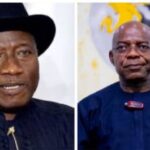Navigating the Political Landscape as 2027 Approaches: A Perspective on Tinubu

With the approach of 2027 and the unfolding of unexpected political alliances, we should brace ourselves for the intensified activity typical of electoral seasons. This period brings forth hastily crafted narratives, the revival of long-debunked scandals, and a tendency for certain entrenched figures to circulate half-truths and misleading claims requiring vigorous defense.
It’s a time when honesty often suffers, and many suppress their moral compasses. Some political analysts attribute this to our "winner-takes-all" system, relegating losing candidates to a prolonged state of disenfranchisement. For President Bola Ahmed Tinubu, a seasoned player in the political arena, one might assume his critics would have exhausted their negative tactics; however, they continue to unveil a relentless stream of attacks, even to the point of absurdity. The current political landscape is teeming with events that hint at the lengths to which individuals will go in pursuit of their objectives, regardless of ethics. Tinubu himself revealed that he nearly withdrew from the previous presidential race due to the formidable opposition he faced, and early signs indicate that the forces seeking to undermine him still persist. Recent days have showcased troubling signs of discontent among those thirsting for power, ready to go to extraordinary lengths to fulfill their ambitions. Notably, there has been a resurgence of Boko Haram attacks, alongside escalated violence in the Middle Belt, particularly in Benue State and Jos, approaching the brink of genocide. Daily reports of these attacks have turned human lives into mere statistics, given the severity and frequency of the violence. Even Borno, which had seen some stability with displaced populations returning home, is experiencing a worrying backlash, prompting Governor Babagana Zulum—known for his bluntness—to raise alarms about this worrying trend. Additionally, unsettling information suggests that the Islamic State West Africa Province (ISWAP) is on the verge of establishing a presence in Plateau and Bauchi States, raising the question of why this resurgence is occurring just as preparations ramp up for 2027. When examining the political realignments, interactions—both overt and covert—and the rise in insecurity, it becomes apparent that there may be underlying schemes aimed at obstructing Tinubu’s path to 2027. Some have gone so far as to assert that he will be a "one-term president," which aligns with a calculated effort to realize that outcome. Controversies regarding his educational credentials, age, and alleged identity inconsistencies, compounded by ongoing legal battles that could cast him in a negative light, have emerged simultaneously—prompting skepticism about the likelihood of coincidence. While Tinubu may remain undeterred by his critics, their malicious actions threaten to overshadow his achievements, altering the narrative from one highlighting his efforts to stabilize the country to one focused on an unwarranted negative image. This situation starkly illustrates how far individuals are willing to go in their quest for power, raising the pertinent question of whether their motives align with public service, given the seemingly combative tactics employed. Bamidele represents the BAT Ideological And Accountability Gr oup and writes from Abuja.









